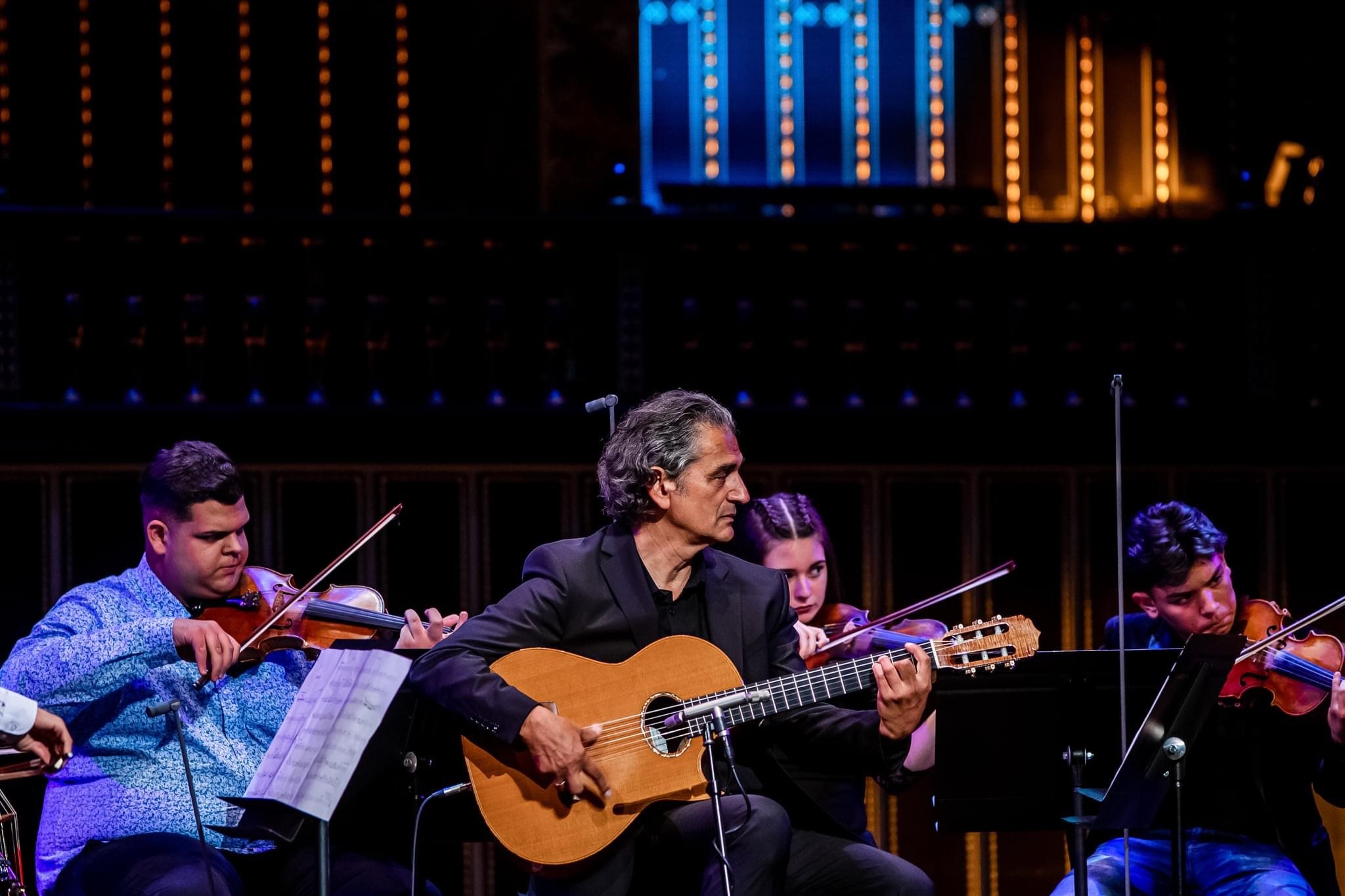“Na Bister” composed by Adrian Gaspar
composition on the occasion of the Holocaust Memorial Day for Sinti and Roma 2019
The piece “Na Bister!” composed by Adrian Gaspar was premiered on the occasion of the 75th anniversary of 2 August in the frame of the commemoration ceremony in Auschwitz-Birkenau for the European Holocaust Memorial Day for Sinti and Roma 2019. This composition is called “Na Bister!” which translates from Romani language to the meaning “Don’t forget!” It is dedicated to the last 4,300 Sinti and Roma that were cruelly killed on 2 August 1944 in Auschwitz-Birkenau in spite of their strong resistance. The piece pays tribute to all the 500.000 Sinti and Roma who were murdered during the Holocaust in Nazi-occupied Europe.
The composer Adrian Gaspar
The Romani artist Adrian Gaspar is a Romanian-Austrian pianist, composer and arranger. Already in his early childhood he was fascinated by the traditional Roma music, and began to compose his first neo-classical piano pieces with influences from traditional Roma music during his musical education at the Music High School of Vienna at the age of 13. In 2003, Gaspar was awarded at the “Competition of the Vienna Music Schools” as the youngest contemporary composer for his piece “Rromanes-ke” for violin, violoncello and piano. In 2013, he began working on the composition of the poem “Ratvale Yasva” (Bloody Tears) by the Polish Roma poet “Papusza” Bronisława Wajs which was only completed in 2020. The work was composed for soprano and symphonic orchestra. In 2016, Gaspar also composed a piece for symphonic orchestra under the title “Bilaćhe Sune” (Unpleasant dreams) based on three paintings of the Austrian Auschwitz survivor Karl Stojka.
Muzìka vaś seripe

O drom so sa džal te na terdiol
Inspired by Ralf Yusuf Gawlick’s O Lungo Drom (The Long Road), an oratorio on the Sinti and Roma people, classical pianist and author Simon Tedeschi reflects on the power of art in LIMELIGHT, a Music, Arts & Culture Magazine.

Ferenc Snétberger
Hungarian Guitarist/Composer

Scarlett Adler
German Sopranist

Lutvija Antic
Serbian Violinist

Natasa Tasic Knezevic
Serbian Sopranist










